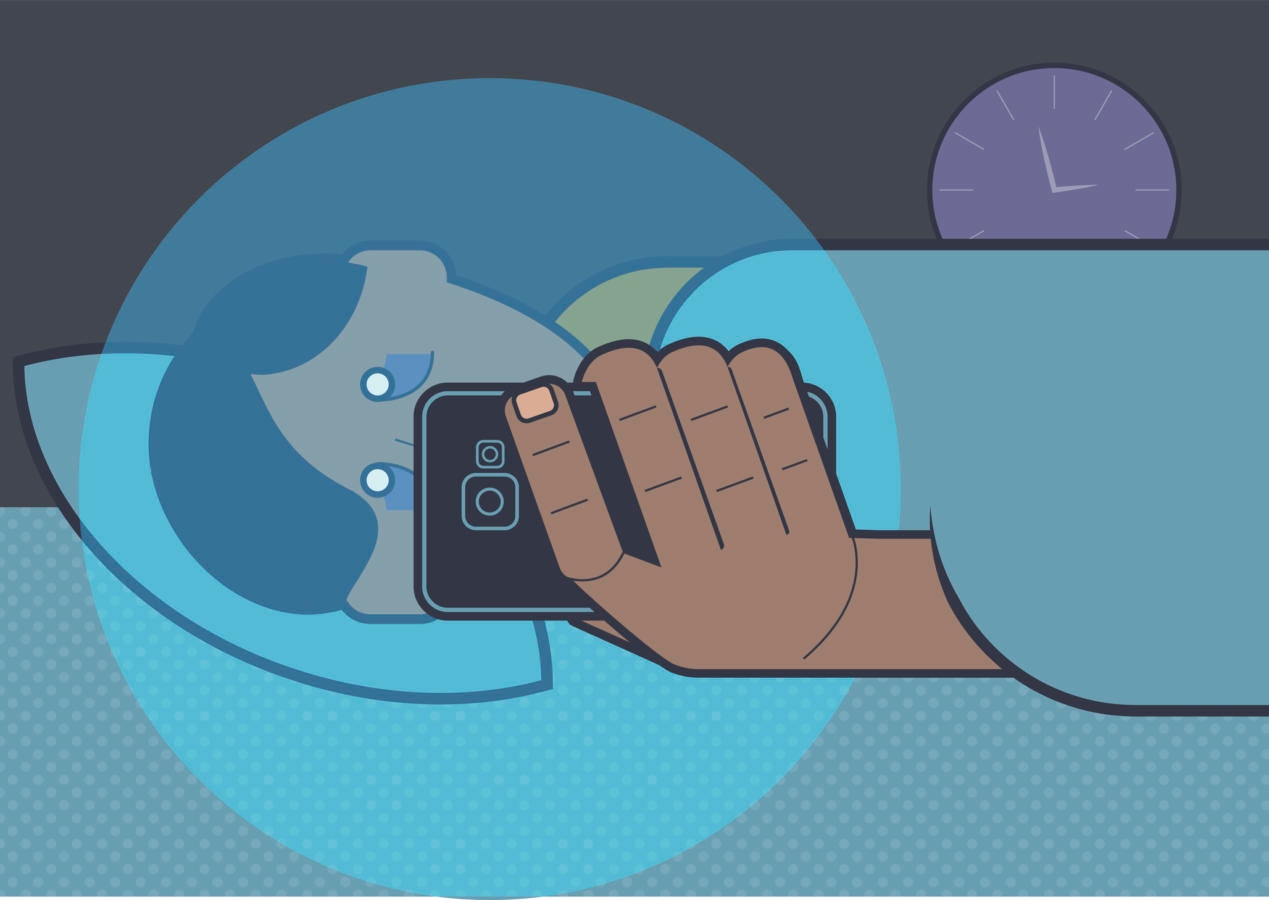It’s hard to imagine life before the Internet, with all the crucial ways it connects you to friends and family, and the way it feeds you news as it happens virtually anywhere in the world. But sometimes, that online connection can start to take over your real life. Do you spend more time on Facebook than you do with friends IRL? Do you blow off homework or hanging out with your family in favor of screen time on Snapchat or Minecraft? Does the thought of losing your phone send you into a panic? When being connected to the Internet is interfering with your life rather than enhancing it, it can lead to depression, anxiety, and ironically, a sense of isolation. Learn more about online addiction, and how to find a healthy balance between real life and virtual reality.
What is online addiction?
Internet or online addiction is an impulse control disorder characterized by an emotional attachment to being online, according to The Illinois Institute for Addiction Recovery. Whether you’re constantly researching topics, reading blogs and posting comments, gaming, or engaging in social media, you get a “high” from the experience similar to the way someone who has a substance or gambling addiction does. That might not sound so bad, but the real problem is that you start spending so much time online it becomes a substitute for a human connection. Over time, online addiction can weaken relationships with your family and friends, affect your grades, and even damage your health.
How does it impact my health?
Online addiction can lead to anxiety, depression, ADHD, stress, obesity, and the inability to interact in the real world, according to numerous studies. It can also have a negative impact on your self-esteem, because you compare your actual life to the fantasy life others present themselves as having online. “It’s easy to think, ‘Why are these people so happy when I’m struggling?’” says Kimberly Hershenson, LMSW, a clinical social worker in New York City. “But the truth is, we don’t know what really goes on with other people’s lives, because we only see the side of it they choose to share online.”
What’s more, the internet feeds an innate human desire to be part of the action all the time. “The online world is available 24/7 and is constantly updating, which creates a fear of missing out (FOMO) if you’re not always online,” says Hershenson. “Constantly checking social media or text messages assures us that we are involved in the lives of others, but gradually it can become an addiction.”
What are the warning signs?
These behaviors indicate you may be spending too much time online:
- You think about certain sites all the time and anticipate when you can get back online.
- You get that “high” feeling online—and it’s a big reason you keep logging on.
- You tell yourself to limit your screen time, but can’t follow through.
- You feel restless, moody, depressed or irritable when you can’t get online.
- You lose track of time—sometimes hours—when you’re online.
- You’ve risked friendships, grades, family rules or forgone hanging out with people in favor of phone, computer, or online gaming.
- You lie or hide your screen time use.
- You go online to escape problems in your real life.
How do I stop?
“If you think you’re using the Internet too much, then you probably are,” says Tim Lynch, Ph.D., a psychologist who studies how computer interaction affects personality. The first step is to identify your triggers for turning to the internet so often. “Is it when you’re lonely? Do you log on more when you’re bored? If you are struggling with depression, stress, or anxiety, technology may be a way to self-soothe,” says Hershenson. Look for healthier ways to manage your moods, such as getting outside for a walk or bike ride, or finding a quiet place to practice relaxation techniques like deep breathing and meditation.
Who can help?
If you’re using the Internet as a way to numb or avoid your feelings, you might benefit from talking with your rabbi or a school counselor about what’s going on. They’ll be able to suggest other ways to work through any problems, says Roseann Rook, CADC, an addiction specialist at Timberline Knolls, a Chicago-area residential treatment center for adolescent girls.
Opening up about your concerns with friends—in person—is also a good strategy, since not only will you establish an emotional connection the way you can’t via texting or social media, you may also discover that they share your concerns about spending too much time online. The problem is more common than many people realize, says Dr. Lynch, and the more you talk about it, the less alone you and your peers will feel.
Finally, a Certified Addictions Counselor can assess your behavior and come up with a treatment plan if needed. Treatment options include individual, group, or family therapy; behavior modification; and Dialectical Behavioral Therapy (DBT), a type of support-based therapy that focuses on identifying negative thinking patterns and replacing them with positive behaviors. Even art and equine therapy (where psychologists have clients work with horses—yes, horses!) to learn better coping and communication skills may help.
The bottom line: When the Internet interferes with school work, responsibilities at home, your relationships, sleep, or your health, it’s become a crutch you need to ditch. Technology is incredible, but real life is even sweeter.
Special thanks to our experts:
Kimberly Hershenson, LMSW, RevitaLife Therapy, New York City
Roseann Rook, CADC, addiction specialist at residential treatment center Timberline Knolls
Tim Lynch, psychologist and president of Psychsoftpc






